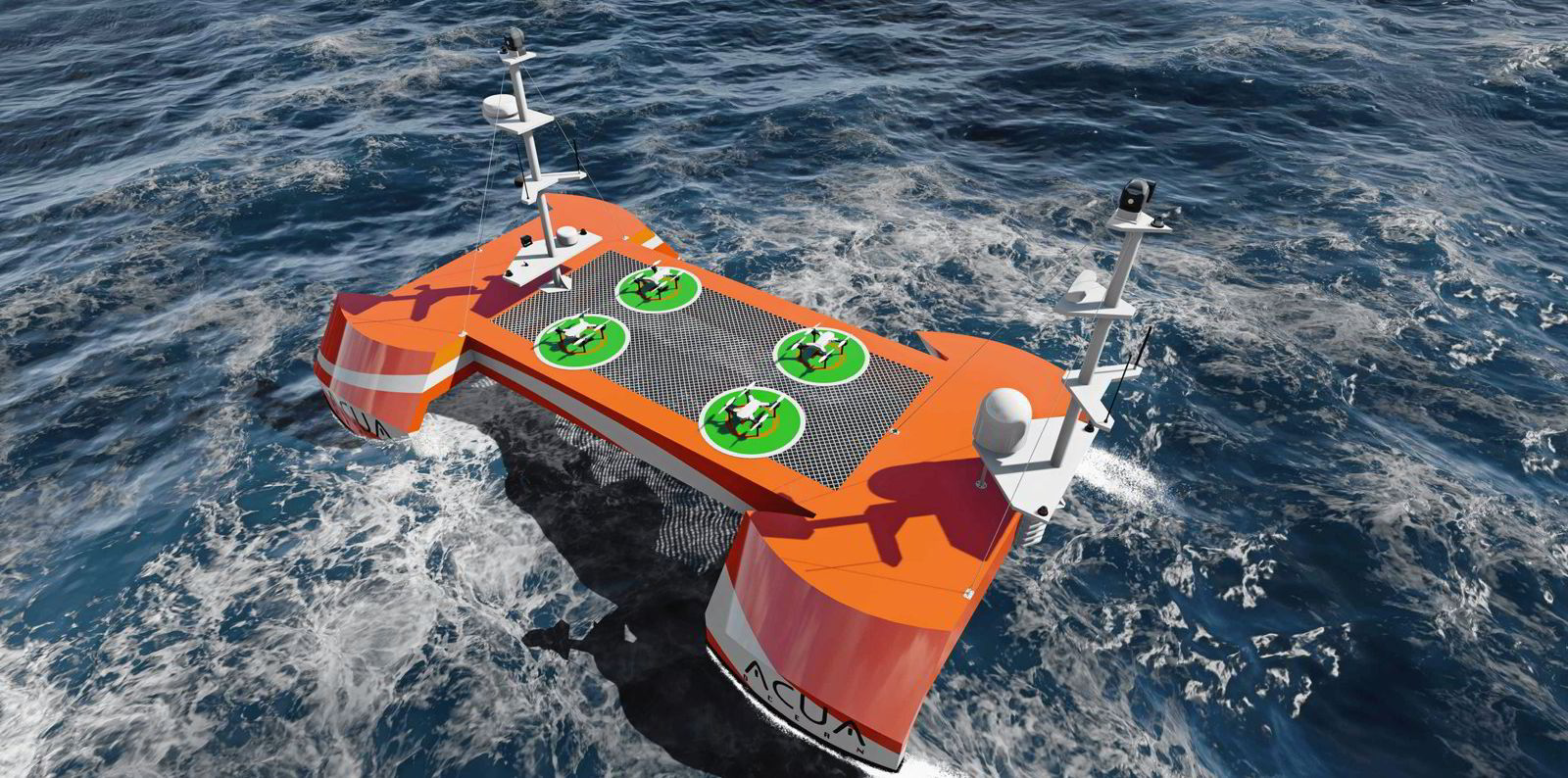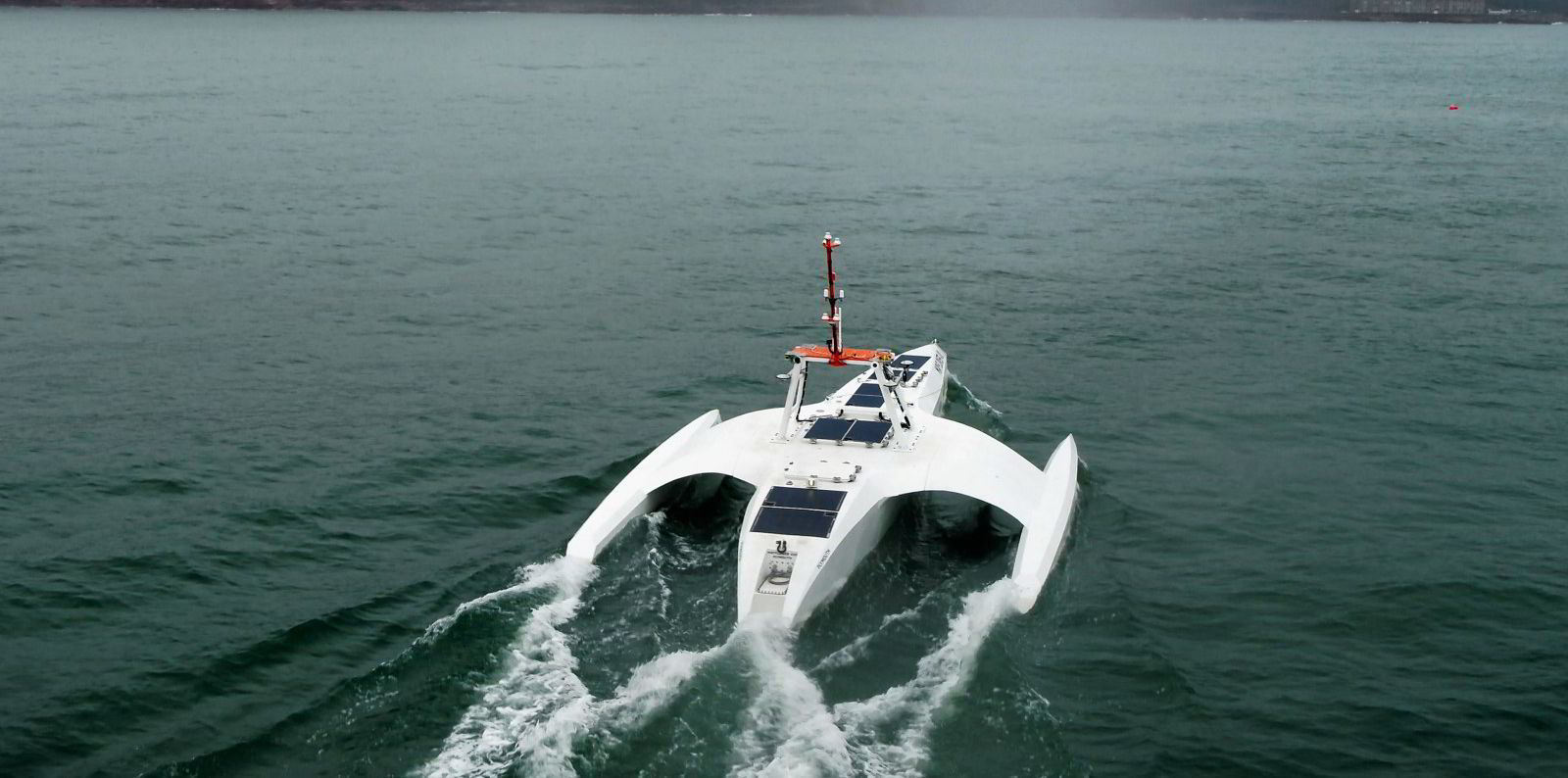The developer of the world’s first zero-emission hydrogen-powered autonomous ship has received approval in principle for its systems in the same month that the Mayflower autonomous surface ship (MASS) just about made it across the Atlantic.
Lloyd’s Register (LR) has granted approval in principle for UK-based Acua Ocean’s hydrogen, control engineering and electrical power distribution systems.
Acua Ocean has also unveiled its new H-USV design developed by naval architect and SWATH designer John Kecsmar of Ad Hoc Marine Designs powered by 6,000 litres of liquid hydrogen.
Lloyd’s Register said the vessel offers a high level of redundancy at sea and is specifically designed for operating in open ocean conditions to offer a platform for a range of ocean monitoring and protection applications.
Earlier this month, the $1m Mayflower MAS400, developed by IBM and Promare, became the largest autonomous vessel to cross the Atlantic controlled by onboard artificial intelligence.
But it was bedevilled by technical issues that slowed it down and required it to cut short its journey.
The MAS400 limped into Halifax, Nova Scotia, on Sunday 5 June after suffering an electrical fault a week earlier that meant its charging circuit for the generator starter batteries were affected, according to IBM.
Instead of around 20 days, the voyage took 40, with mechanical problems requiring an earlier stop in the Azores for repairs as well as deviation from its designated landing point in Virginia to the closer Halifax.
The vessel was diverted to the Azores for repairs after a switch failure, and the boat’s first attempt at a transatlantic crossing in June 2021 was abandoned due to a mechanical fault.
The MAS400 has a hybrid propulsion system mainly drawing energy from solar panels, but an on-board generator automatically switches on to top up the battery when required.
Its 2021 crossing was ended after about a week by a fracture to a flexible metal coupling between the ship’s generator and exhaust system.
Original plans for a 2020 crossing to commemorate the 40th anniversary of the first Mayflower sailing were delayed by the Covid-19 pandemic.
The new Mayflower may sail on to Washington DC if engineers can repair it in Canada.
Lloyd’s Register and Samsung Heavy Industries (SHI) also agreed to develop an autonomous-ready ship design this month.
Lloyd’s Register will certify SHI’s Samsung Autonomous Ship system, which integrates current navigation equipment with the South Korean shipbuilder’s new SVISION software that aims to eliminate human error in evaluating collision risks.
A condition-based maintenance system will also be certified that performs measurement and diagnosis tasks automatically for remote fault detection of machinery.





